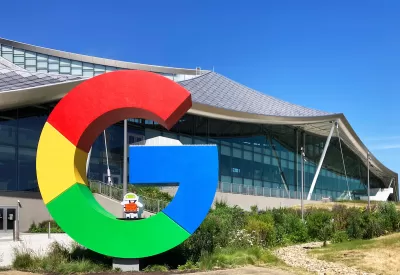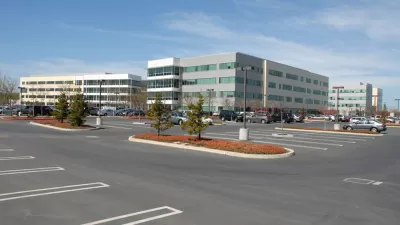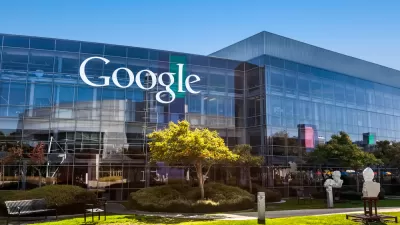The company parted ways with its development partner, signaling a shift in strategy for a proposed 15,000-unit housing and office space project on Google-owned land in Silicon Valley.

A partnership between Google and developer LandLease has dissolved, placing into question a plan to build 15,000 housing units to alleviate the Silicon Valley housing crisis perpetuated by tech giants.
As Nate Berg reports in Fast Company, “The projects, announced last year, were intended to transform large swathes of Google-owned land in San Jose, Sunnyvale, and Mountain View into four dense, walkable, mixed-use neighborhoods.”
While the ocmpanies call the move a “strategic redirection,” Berg writes, “It’s hard to not read between the lines of this partnership’s dissolution, especially for a high-profile project that had aims to build many units of housing alongside ample office space.” For Berg, “Google and Lendlease parting ways suggests that large projects that are anchored to office developments—even ones as needed as dense housing in one of the country’s most expensive markets—will require some significant reconsideration.”
A Google spokesperson said the company is looking for new partners to move forward with the project. “That Google’s Arena refers to this next phase as delivering on Google’s “housing commitment” may indicate that its next steps are less focused on the commercial side of the original plan.”
FULL STORY: Google’s plan to build 15,000 new homes in Silicon Valley just got more complicated

Planetizen Federal Action Tracker
A weekly monitor of how Trump’s orders and actions are impacting planners and planning in America.

Congressman Proposes Bill to Rename DC Metro “Trump Train”
The Make Autorail Great Again Act would withhold federal funding to the system until the Washington Metropolitan Area Transit Authority (WMATA), rebrands as the Washington Metropolitan Authority for Greater Access (WMAGA).

The Simple Legislative Tool Transforming Vacant Downtowns
In California, Michigan and Georgia, an easy win is bringing dollars — and delight — back to city centers.

The States Losing Rural Delivery Rooms at an Alarming Pace
In some states, as few as 9% of rural hospitals still deliver babies. As a result, rising pre-term births, no adequate pre-term care and "harrowing" close calls are a growing reality.

The Small South Asian Republic Going all in on EVs
Thanks to one simple policy change less than five years ago, 65% of new cars in this Himalayan country are now electric.

DC Backpedals on Bike Lane Protection, Swaps Barriers for Paint
Citing aesthetic concerns, the city is removing the concrete barriers and flexposts that once separated Arizona Avenue cyclists from motor vehicles.
Urban Design for Planners 1: Software Tools
This six-course series explores essential urban design concepts using open source software and equips planners with the tools they need to participate fully in the urban design process.
Planning for Universal Design
Learn the tools for implementing Universal Design in planning regulations.
Smith Gee Studio
City of Charlotte
City of Camden Redevelopment Agency
City of Astoria
Transportation Research & Education Center (TREC) at Portland State University
US High Speed Rail Association
City of Camden Redevelopment Agency
Municipality of Princeton (NJ)




























